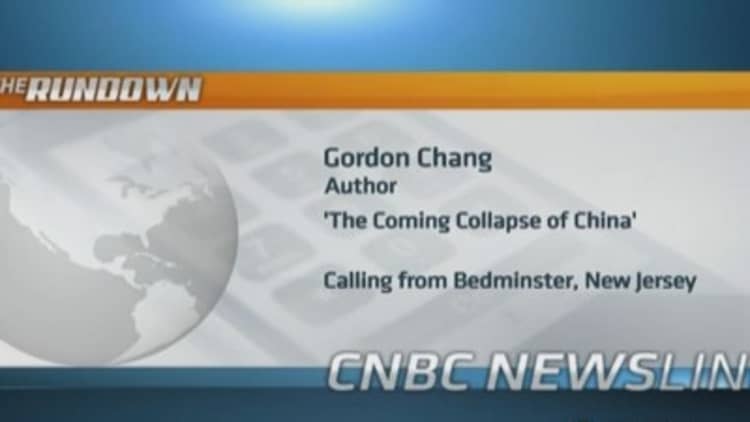Thousands of protesters campaigned for full democracy in Hong Kong over the weekend, raising the question: Could unrest spread to mainland China.
"Today is a very important moment for Beijing and for the Hong Kong government because if they don't control the streets of Hong Kong today they could see this thing start to mushroom," Gordon Chang, author of 'The Coming Collapse of China' told CNBC on Monday.
"Beijing has a lot at stake here as this is something that could spread…political scientists call it the 'demonstration effect,'" he said. "We're starting to see that now in China."
Read MoreHere's how the protests will hit Hong Kong's economy
Netizens across China shared images from the protests and expressed their views via social media, but authorities quickly deleted posts and shut down websites, in line with China's history of censorship.
Popular photo sharing website Instagram was blocked after photos and videos from the Hong Kong protests were posted, according to numerous reports. Meanwhile, the phrase "Occupy Central" was blocked on Weibo – the hugely popular micro-blogging site in China – on Sunday.
Signs of spreading?
Ripples of discontent have begun to show in Taiwan and Macau.

In Taiwan, a state that is essentially autonomous, student leaders occupied the lobby of Hong Kong's representative office on Monday in a show of support for democracy protesters, according to local media.
Meanwhile, in Macau – another "special administrative region" like Hong Kong, a referendum conducted last month during the official election of its chief executive, showed a striking disparity between the election result and public opinion.
Fernando Chui was re-elected as Macau's chief executive by a 400-person committee that is largely pro-Beijing at the end of August. But a referendum showed 89 percent of Macau's 9,000 residents do not trust Chui, while 95 prefer direct elections, the Voice of America reported.
Read MoreHong Kong protests explained
Contagion unlikely
The risk of unrest spreading to other countries is minimal, analysts told CNBC.
"Protests in Hong Kong will carry on for the next few days," said Sean Darby, global head of equity strategy at Jefferies. "That's alarming and difficult to interpret, [but] I don't see it spreading any further – it's a Hong Kong centric action."
Jim Walker, China economist and CEO at Asianomics, agrees: "I don't think there's much chance the protests will spread into mainland China," he said.
Read MoreImages of Hong Kong's violent weekend
"They've had 60 years to make that decision and they've done nothing about it so far. It's certainly the case that they might be looking at Hong Kong as a partial example. But they generally see Hong Kong as a very different place from the rest of China. They know it's under a separate system… I doubt it's even on their radar screen," he said.
The Hong Kong protesters were made up of students and supporters of the Occupy Central movement – the body that demonstrated for full democracy over the summer months.
As a "special administrative region", Hong Kong has more autonomy and freedom than China, but the elective process is still partly controlled by Beijing, which pre-approves candidates that are eligible to run for election.


